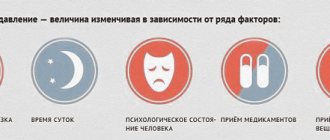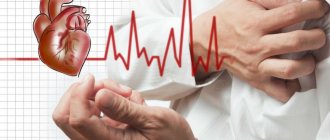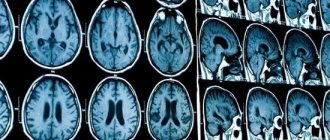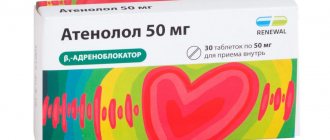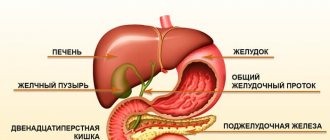Safe and effective medications for low blood pressure (hypotension).
May 2, 2021
23619
4.5
1
Content
- How to choose medications for low blood pressure?
- Caffeine
- Ekdisten
- Gutron
- Caffeamine
- Apilak
With hypotension, a person feels dizziness, malaise and deterioration in general well-being. Low blood pressure is a condition when blood pressure numbers fall below normal values.
We speak of low blood pressure when its value is about 90/60. Some people feel great with this pressure (no treatment is required), while others experience unpleasant symptoms. If you feel unwell with hypotension, be sure to consult a doctor to determine the cause of this condition and get the right treatment.
What blood pressure is considered normal?
The result of measuring pressure is two digits. The first is systolic pressure (at the moment when the heart contracts and pushes blood into the arteries). The second number is diastolic pressure (it is minimal and corresponds to the moment when the heart is relaxed). The absolute norm is considered to be 120/80 mmHg. Art., but for each person its own meaning will be normal. The individual norm depends on many factors, for example, weight and age. Also, stress, recent consumption of coffee or large amounts of liquid, overwork, physical activity, and other factors may affect the measurement results (Fig. 1).
Figure 1. What pressure is considered elevated. Source: MedPortal
Low blood pressure is considered to be below 90/60 mmHg. Art., elevated - if the values rise above 140/90 mm Hg. Art. These conditions manifest themselves in different ways.
Hypotension (low blood pressure) may cause the following symptoms:
- dizziness;
- nausea;
- loss of consciousness;
- weakness, fatigue;
- decreased concentration;
- deterioration of vision (everything becomes faded, blurry).
Hypertension (high blood pressure) may have the following symptoms:
- headaches, pain behind the sternum, in the heart area;
- shortness of breath (especially during physical exertion);
- dizziness;
- nosebleeds;
- nausea, vomiting.
Important! With both hypertension and hypotension, there may be no symptoms for a long time. Therefore, it is better to periodically monitor your blood pressure by measuring it with a tonometer.
How to choose medications for low blood pressure?
Medicines for hypotension are rarely prescribed. Usually, to improve the condition, it is enough to change your lifestyle: adjust your daily routine, eat right, drink more fluids and increase the amount of salt.
If drug support for low blood pressure is needed, drugs that increase the volume of blood circulating in the body or drugs that spasm peripheral arteries are prescribed. This helps increase blood pressure because blood will flow through narrower vessels under greater pressure.
All medications for low blood pressure are prescribed only by a doctor, having previously ruled out pathological causes of low blood pressure. Usually, drugs of synthetic or plant origin are used - tonics and vasoconstrictors.
Here are the safest and most effective pills for low blood pressure.
Caffeine
This drug is sold both in tablets and in a solution for subcutaneous administration. Caffeine is a natural nervous system stimulant that stimulates the nervous system, increases vascular tone, improves blood circulation and increases blood pressure. “Caffeine” is prescribed for moderate hypotension, decreased performance, general malaise, vascular headaches, and drowsiness.
Read also: Top 10 best blood thinners Blood thinners
It is believed that “Caffeine” is a safe medicine, but there are contraindications to its use: the body’s sensitivity to its components, age under 12 years, severe heart disease (cardiosclerosis, coronary artery disease, heart attack), mental disorders, hypertension, arrhythmia, insomnia, depression. It is prescribed with caution to those who suffer from glaucoma and other vision problems.
Side effects from taking Caffeine include rapid heartbeat, sweating, nausea, trembling, and dizziness. After the effects of caffeine wear off, a person may experience weakness, inhibition of the nervous system, or general malaise.
Caffeine
JSC "Tatkhimfarmpreparaty", Russia; Borisov medical plant drugs, Belarus; PrJSC Pharmaceutical Company “DARNITSA”, Ukraine; Novosibkhimpharm OJSC, Russia; JSC Dalkhimfarm, Russia; "Moskhimfarmpreparaty" named after. N. A. Semashko, Russia; PJSC Scientific and Production Center "Borshchagovsky Chemical Plant", Ukraine
A drug whose range of uses includes: Diseases accompanied by depression of the central nervous system, functions of the cardiovascular and respiratory systems (including poisoning with opioid analgesics, infectious diseases), cerebral vascular spasms, decreased mental and physical performance, drowsiness.
from 35
5.0 1 review
700
- Like
- Write a review
How to live with low blood pressure
Arterial hypotension - a decrease in blood pressure by more than 20% from the initial/usual values or in absolute numbers - below 90 mm Hg. Art. systolic pressure or 60 mm Hg. mean arterial pressure.
The following types of arterial hypotension are distinguished:
- Acute arterial hypotension
- Chronic arterial hypotension
- Primary chronic arterial hypotension
- Secondary chronic arterial hypotension
Acute symptomatic hypotension (sharp drop in pressure). For example, very low blood pressure is often accompanied by acute myocardial infarction, pulmonary embolism, severe arrhythmias, intracardiac blockades, allergic reactions, blood loss, etc. Emergency medical care is required.
Physiological (chronic) hypotension manifests itself in trained athletes and as a hereditary predisposition to low blood pressure, which does not go beyond normal limits.
Primary (otherwise known as idiopathic or essential) hypotension is an independent disease.
According to one theory, primary hypotension is a special form of neurosis-like disease of the vasomotor centers of the brain, since prolonged psycho-emotional stress and stress may play a very large role in its development.
Secondary arterial hypotension occurs against the background of other diseases (for example, osteochondrosis of the cervical spine, stomach ulcers, anemia, hepatitis, pancreatitis, cystitis, tuberculosis, rheumatism), arrhythmias, alcoholism, diabetes, diseases of the endocrine system or respiratory organs, tumors, shock, brain injuries, liver cirrhosis, mental trauma, circulatory disorders, heart failure, intoxication, as a side effect of certain medications (for example, their overdose in the treatment of hypertension), etc.
Hypotension can also develop due to fasting and lack of vitamins E, C, B and pantothenic acid (B5), in athletes with constant physical activity. This is the so-called “training hypotension.” In this case, low blood pressure acts as a kind of protective measure for the body. It turns out that with constant overload, the body begins to work in an “economy” mode, the heart rate becomes less frequent and the pressure drops.
Pressure also decreases when a person adapts to a sudden change in climatic or weather conditions. In addition, the pressure level is affected by: increased humidity, the influence of electromagnetic fields, radiation, etc.
Most often, low blood pressure is associated with impaired vascular tone. Normally, vessels should quickly narrow and dilate when necessary, but in hypotensive patients this reaction is slowed down. So it turns out that because of this, blood stops flowing in sufficient quantities to organs and tissues. As a result, the body's systems and organs, in particular the brain and heart, experience oxygen starvation and are unable to function optimally.
How does hypotension manifest?
Hypotension does not always mean illness. Some people, having constant low blood pressure, feel great, and for them it is normal, while others constantly suffer. Symptoms of low blood pressure include:
- feeling of fatigue, weakness, decreased performance;
- headache; usually dull, constricting, bursting or pulsating, more often in the frontotemporal or frontoparietal region;
- dizziness and fainting;
- intolerance to stuffiness;
- insomnia;
- increased irritability
- irritability;
- sensitivity to weather changes;
- emotional instability, apathy;
- increased sweating;
- violation of thermoregulation (cold hands and feet);
- tendency to motion sickness, nausea.
Interestingly, the time of day is of great importance for the well-being of hypotensive patients. So, they get out of bed sleep-deprived and exhausted, then, after an hour or two, they come to their senses. During the day, their performance drops again, but by the evening they are again cheerful and ready for a feat.
Hypotonic people love cold weather more, since they tolerate cold much better than heat. It is especially difficult for them in public transport, in a crowd - the stuffiness makes them feel dizzy and headaches, they may even faint. Fainting can also be caused by a sudden rise from a lying position, especially in the morning after sleep. The state of health of a hypotensive person worsens both after a heavy meal and after a strong emotional shock.
How to live with hypotension
If hypotension was a manifestation of another disease, then, naturally, it is necessary to be treated for it.
With primary hypotension, you first need to pay attention to lifestyle.
If possible, it is better to adjust your daily routine to your well-being: sleep longer in the morning, perhaps lie down for a couple of hours in the afternoon, planning the main tasks for the second half of the day, when you feel cheerful and rested. Unfortunately, not everyone can afford such a routine.
But anyone can train blood vessels. After all, it is their reduced tone that is the cause of all the troubles of hypotension. Pouring cool water with a gradual decrease in its temperature or a contrast shower are suitable for this, but the transition from heat to cold should not be abrupt, but smooth.
Coffee is believed to be a tonic. If it helps you cheer up, you can drink it, but you shouldn’t get too carried away - two or three cups a day are enough. You can try to improve vascular tone with green tea, only real tea, brewed, and not in bags.
Since a large meal is difficult for a hypotensive person, it is advisable to eat in small portions, but more often. And the diet must contain animal proteins.
The first friend of a hypotensive person is fresh air. Often a simple walk can help get rid of a headache. Walk more often, walk, if possible, sleep with an open window or vent, or at least ventilate the bedroom well at night.
And of course, physical activity is vital for those suffering from low blood pressure. This could be a set of exercises (only without sudden head movements), skiing, cycling, or exercise in the pool. But all this is without fanaticism - the load should be moderate.
Simple and banal, however, you should not neglect these simple recommendations - they will really make the life of a hypotensive patient more comfortable.
Doctor - therapist (precinct) 2nd ter. departments
Belevich Elena Alexandrovna
Ekdisten
This is a herbal medicine that comes in the form of tablets and powder sachets. The active substance of the drug is a plant extract from the rhizomes of Leuzea safflower. "Ecdisten" improves overall metabolism, vascular tone, stimulates protein synthesis, and has a weak anabolic effect.
This drug is prescribed for low blood pressure, general asthenia, to improve performance and for weather dependence.
Contraindications include: age under 18 years, allergies to drug components, hypertension, nervous disorders with agitation, epilepsy, stomach ulcers. Ecdisten should be prescribed with caution to those with diabetes or thyroid disease. Alcohol is contraindicated while taking Ecdisten.
Ekdisten
Wifitech/Vilar, Russia
The drug Ecdisten is used in adults as a tonic: asthenodepressive syndrome (associated with a weakening of protein synthesizing processes: during prolonged intoxication, infections), neurasthenia. And also as part of combination therapy - arterial hypotension, intense training (dysfunction of the cardiovascular system, especially with pronounced signs of myocardial overstrain and increased protein catabolism), as a drug that increases speed and strength qualities during the period of preparation for competitions.
298
- Like
- Write a review
Nothing hurts, but I don’t even have the strength to get out of bed... Is this a familiar state? It may be a sign of low blood pressure. Yulia Sachuk, a cardiologist at Petrozavodsk Polyclinic No. 4, spoke about what hypotension is and how to live with it.
– Yulia Viktorovna, what kind of blood pressure is considered low and is called hypotension?
– Less than 100/70 or 90/60, but there are a few caveats. First of all, you need to understand that hypotension can be of two types. If we are talking about physiological hypotension, then for many people this is a completely normal condition.
That is, a person with a blood pressure of 90/60 can feel very good; for him, such seemingly low blood pressure is not hypotension. This is his normal state.
Most often, such pressure occurs in fragile and petite girls and slender young women. In men, overweight people, hypotension is much less common.
In addition to physiological, hypotension can be secondary, when a decrease in pressure occurs due to a number of reasons. For example, after taking medications that lower blood pressure in hypertensive patients, if their dosage is not adjusted. Or after taking medications, the side effect of which is a decrease in blood pressure.
Certain diseases can lead to secondary hypotension, in particular any intoxication of the body (ARVI and other inflammatory diseases), anemia (decreased hemoglobin), as well as chemotherapy for oncology.
– What does a person experience with hypotension?
– General weakness, drowsiness, fatigue, nausea...
– Isn't nausea a sign of high blood pressure?
- Not only. Symptoms such as headache, dizziness, trembling in the body, in the hands, palpitations, nausea can occur with both hypertension and hypotension.
– Are there medications for hypotension?
– There are no clinical recommendations for prescribing drugs for hypotension. In order to slightly increase blood pressure, as a rule, they take caffeine-containing medications, you can also drink strong tea, herbal infusion, a cup of coffee, or eat a piece of dark (that’s right, bitter!) chocolate.
In addition, you can lie down with your legs elevated: in this case, blood flow to the heart increases and the pressure rises slightly.
– If a person suddenly gets up from bed, for example in the morning, and feels dizzy, is he hypotensive?
– In this case, we can talk about the so-called orthostatic hypotension, that is, a condition that occurs during a sharp transition from a horizontal to a vertical position. The advice here is this: when sleeping, the head should be higher than the lower part of the body, that is, such people are not recommended to sleep without a pillow, as many people do now.
In addition, they should not get up abruptly; it is better to do it calmly, without rushing, so that the body has time to stabilize: first, sit down on the bed, pause, and then you can get up.
– Everyone knows that hypertension can lead to serious consequences such as stroke or heart attack. What about hypotension?
– Low blood pressure can be dangerous, of course. Most often in older people taking pills for hypertension. Moreover, the most dangerous time is in the morning. The fact is that at night a person’s blood pressure usually drops slightly, and while taking antihypertensive drugs this decrease is even greater. Therefore, it is very important to follow the correct dosage of medications.
– How dangerous is hypotension for pregnant women?
– I will say this: the greater danger for them is high blood pressure, which can lead to complications and premature birth.
– How does the weather affect hypotensive patients?
– They are often sensitive to weather changes, especially in the off-season, during the transition from one season to another. More often in spring and autumn.
– If a person lives with low blood pressure for many years, does this mean that he is not at risk of hypertension?
- Of course not! Hypotension is not a guarantee that you will never have hypertension. It can develop as an independent disease under the influence of various factors, when the neurohumoral regulation of the body is disrupted, that is, the nervous and vascular systems begin to work not quite correctly. Hypertension can also be hereditary.
It is worth noting that for hypotensive people the limits of high blood pressure are somewhat lower. For example, everyone knows that hypertension is when blood pressure repeatedly exceeds 140/90. So, for those who have always had low blood pressure, 130/80 may already be the initial manifestation of hypertension.
Of course, if we talk about hypertension and hypotension, then today throughout the world it is hypertension, that is, arterial hypertension, that “contributes” to mortality from cardiovascular diseases both in our country and in Europe, and, in general, in all over the world. But hypotension cannot be ignored either. In any case, if something bothers a person, you need to see a therapist.
By the way
- Low blood pressure and a sedentary lifestyle are a very bad combination. Hypotonic people benefit from dosed physical activity, because this increases blood pressure slightly. You can dance, swim in the pool, ski, walk or bike... The load should be selected individually, taking into account existing contraindications.
- Hypotensive people need to eat regularly, at least four times a day. A diet with a high content of potassium (potatoes, eggplants, cabbage, prunes, apricots) and calcium (dairy and fermented milk products, cheeses) helps improve your well-being.
- It is recommended to sleep at least 7-8 hours a day, ideally all 9. Otherwise, lethargy and irritability are guaranteed.
Gutron
This drug for the treatment of hypotension is available in drops and tablets and is sold by prescription. The active substance of the drug is midodrine (a group of adrenergic agonists that tone blood vessels).
“Gutron” is prescribed for hypotension, orthostatic hypotension (a sharp decrease in pressure when a person takes a horizontal position), and for weather dependence. The medicine moderately constricts blood vessels, improves their tone, which increases blood pressure and removes blood stagnation in the veins.
Contraindications include: high blood pressure, overactive thyroid gland, severe kidney disease, urinary retention and prostate adenoma.
When taking Gutron, the following side effects are possible: skin rash, tachycardia, nausea. This drug should not be taken with alcohol.
Gutron
Takeda Pharmaceutical Company, Japan
Gutron is a remedy for increasing blood pressure, and is also recommended for use in patients with urinary incontinence caused by bladder dysfunction.
from 1950
5.0 1 review
771
- Like
- Write a review
How to normalize blood pressure
16.12.2021
Just recently, only older people complained about blood pressure problems. Now young people can report feeling unwell due to pressure changes. If such a change in the behavior of the body is periodically observed, then you should contact the clinic . And, nevertheless, you should not immediately resort to medications; you should try to use unconventional methods to increase or decrease your blood pressure.
If periodic pressure changes are observed, then you should pay attention to your own weight. Any excess of the norm can affect your well-being. Therefore, it is necessary to stabilize blood pressure with food. Eat as many fruits and vegetables as possible. Wild berries are useful for blood pressure.
To normalize blood pressure, you need to know which products can help with this. There are foods that increase blood pressure, and there are those that lower it.
If you remove food that is not entirely healthy, you can normalize your well-being. For example, coffee, strong black tea, carbonated drinks, energy drinks. Hypertensive patients must follow a certain diet with an emphasis on cereals, potatoes, peas and beans. Hypotonic people can drink a cup of coffee, eat salty and fatty foods and at the same time monitor their weight.
Some medications can cause blood pressure fluctuations:
- Hormonal oral contraceptives
- Appetite pills
- Anti-inflammatory drugs
Hypotension can develop due to a lack of vitamins C, B5, E, heart , respiratory pathology, hepatitis, cholecystitis , stomach ulcers . In this case, the pressure can be normalized by eliminating the cause of the disease.
Gymnastics, morning exercises, running, and physical exercise can normalize pressure drops, but without fanaticism.
To have good health, excellent well-being and excellent mood, it is very important to get adequate sleep. And go to bed no later than 22 hours. Hypotonics should be in a state of sleep for 11 hours, hypertensives - 8 hours. Hypotonic people usually fall asleep without difficulty, which cannot be said about hypertensive people, so they are recommended to choose a low pillow that can ensure blood to the head.
If you have high blood pressure, you need to prepare a high pillow to blood . If there are frequent changes in pressure, you should have medications prescribed by your doctor .
Published in Cardiology Premium Clinic
Caffeamine
This drug for increasing low blood pressure is available in tablets and is sold by prescription. Belongs to the group of combined psychostimulants, the active substances are caffeine and ergotamine. “Caffetamine” tones the nervous system and constricts blood vessels.
This medicine is prescribed for migraines, hypotension and intracranial hypertension.
Among the contraindications: allergic reactions to the components of the drug, age under 18 years, atherosclerosis, high blood pressure, pregnancy and breastfeeding, insomnia, glaucoma, psychosis, serious heart disease, advanced age of the patient. Side effects: nausea, increased sweating, agitation, tachycardia.
Caffeamine
KRKA-RUS, Russia
The drug is used for: Vasoparalytic form of migraine;
arterial hypotension; as a means of lowering intracranial pressure in vascular, traumatic and infectious lesions of the central nervous system. from 151
5.0 1 review
503
- Like
- Write a review
Read also How to treat migraine: the best drugs Top 5 best drugs against migraine
Apilak
This low blood pressure medicine comes in the form of sublingual tablets and ointment. "Apilak" belongs to the group of natural stimulants for the complex treatment of asthenia, neurotic disorders, and hypotension. Apilak contains a complex of biologically active substances, minerals and vitamins. The active substance is royal jelly. "Apilak" improves vascular tone, tones the nervous system and stimulates the body as a whole.
Contraindications include: allergies to bee products, age under 18 years, Addison's disease, hypertension.
